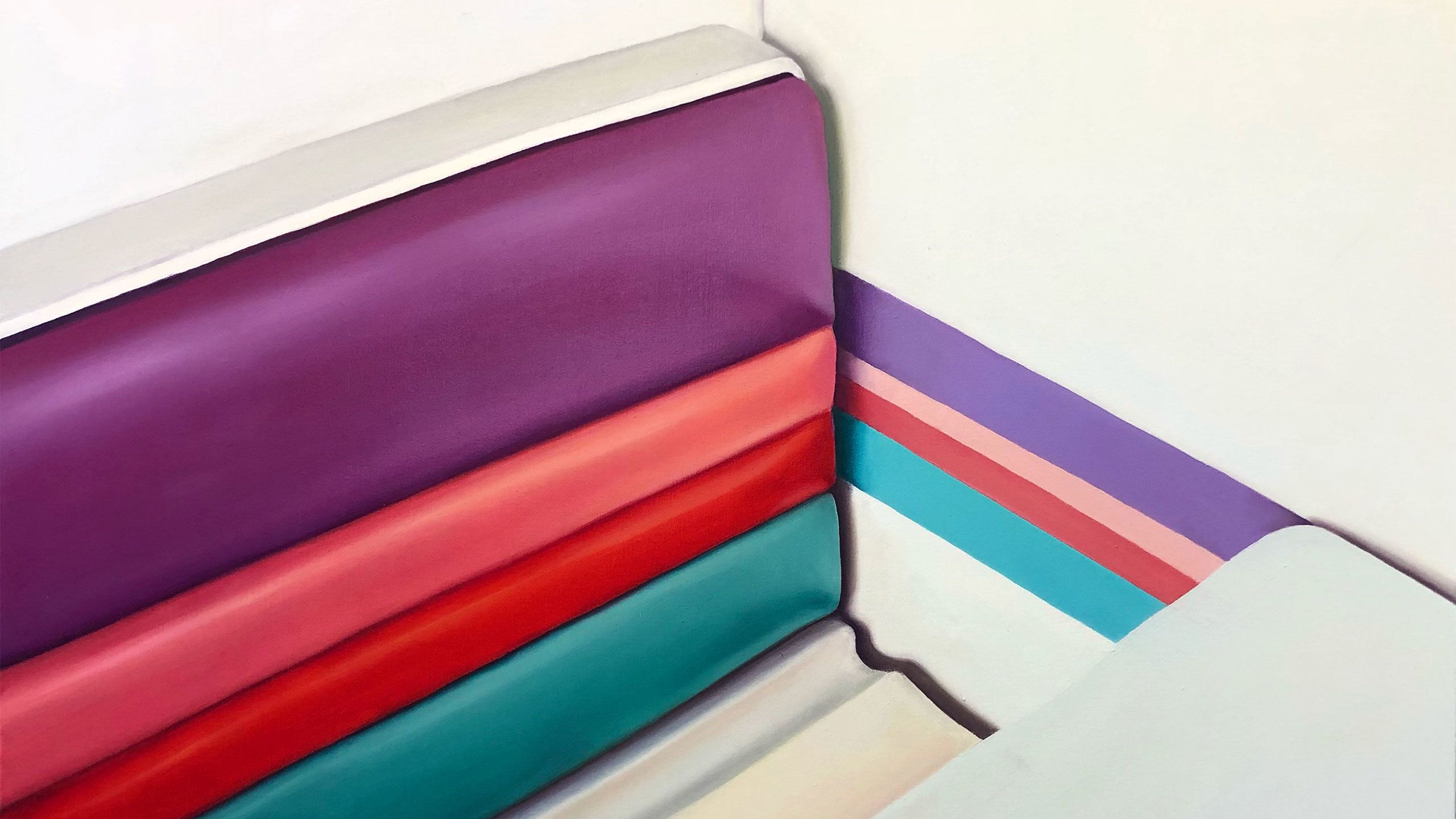
Looking for Happiness?
Put it in Your Cart
Alumna explores commodity culture in art installation “Life in Plastic, It’s Fantastic”
By Caroline Brobeil, March 27, 2024

The relentless drumbeat of consumer culture is so woven into daily life that it can be hard to imagine living any other way. While some decry materialism, artist Noel Cross CCAS’20 hopes her most recent exhibit offers a different view.
Cross’s latest installation, “Life in Plastic, It’s Fantastic,” was a featured exhibition at The Campus Gallery at Rutgers University–Camden. Her still-life paintings feature everyday objects in bright, whimsical colors set against blank, open space. The collection invites visitors to see the simple totems of American consumerism in a different context.

Noel Cross CCAS’20. Image courtesy The Delaware Contemporary
Noel Cross CCAS’20. Image courtesy The Delaware Contemporary

“When I was growing up in the late 1990s and early 2000s, globalization created a significant shift in how and where things were produced—things became really cheap and affordable to everyone, even those without a whole lot of money," Cross said. "I remember going to the dollar store with five dollars from my parents, and I felt rich."
That feeling was not an accident but the result of a shift in American society that followed World War II, when surplus wartime production morphed into the mass production of consumer goods. Fifty years later, an additional and monumental shift in the availability of inexpensive goods occurred with the passage of the North American Free Trade Agreement (NAFTA) in 1994 and China's decision to join the World Trade Organization in 2001. The impact of those geopolitical decisions and the resulting evolution of average Americans into consummate consumers is the foundation for Cross’s recent exhibit.
“When I was growing up in the late 1990s and early 2000s, globalization created a significant shift in how and where things were produced—things became really cheap and affordable to everyone, even those without a whole lot of money.”
"I found that I wasn't alone in attaching emotional meaning to the objects I could buy in childhood," Cross said. "I realized that others in my generation and even in other generations shared this deep affection for similar objects, almost like a collective memory of childhood.” She hopes her exhibit at Rutgers–Camden demonstrates how objects carry the psychological weight of memory and how those memories endure through time.
Cross, who has been formally studying art and painting since she was young, is completing a residency at The Delaware Contemporary. This art space presents exhibitions of regionally, nationally, and internationally recognized artists that explore topical issues in contemporary art and society.
Cross encourages students currently enrolled in the fine arts program at Rutgers–Camden to stay connected with their creative passions and move beyond their comfort zones.
"When I was a student, my professors wanted me to honor what I knew but also pushed me to experiment, which can feel very uncomfortable," Cross said. "I encourage students to push themselves in that same way, because the experience is invaluable."








Design: Douglas Shelton
